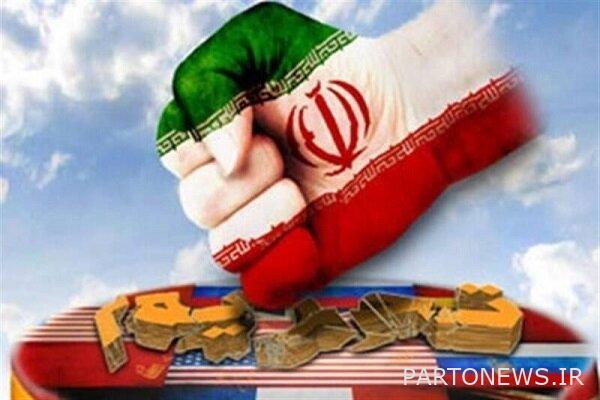Iran’s experience proves ineffective sanctions – Mehr News Agency | Iran and world’s news

According to the Mehr news agency, “Foreign Policy” newspaper, in an article referring to the ineffectiveness of the sanctions policy and emphasizing the Iranian example, stated that the imposition of sanctions on Moscow does not affect the policies and decisions of Russian President “Vladimir Putin”.
Foreign Policy goes on to cite allegations of so-called Russian atrocities in the killing of civilians and the destruction of public places in Ukraine, noting that various countries have responded by expelling Russian diplomats.
The following is a summary of the Foreign Policy article:
The sanctions machine of the United States and the European Union has been activated with full force in this regard, and Russia has been the target of numerous sanctions and punitive measures, so that in a short time, this country Iran, which suffers the most sanctions from the United States and The EU has been left behind.
Sanctions have been used gradually for decades as a tool to exert pressure, and the United States is a major user of these coercive measures. Currently, at least 24 countries are targeted by US sanctions, which are either partial and apply to certain aspects of trade with a country’s institutions, such as Nicaragua and Venezuela, or cut off trade with one country altogether. They do like what is happening in Iran.
Sanctions imposed on Iran since 1979 can be a good example of the fact that sanctions do not change the behavior of a government.
The sanctions imposed on Iran by the administration of then-President Jimmy Carter under the pretext of hostage-taking were later intensified under other pretexts, including human rights issues and the most important US pretext, the Iranian nuclear issue. As a result, the country has virtually lost access to the international banking and financial sectors.
The sanctions, which culminated in former US President Donald Trump’s “maximum pressure” campaign, have failed. Despite all this, the sanctions have not helped much to change the behavior and general policies of the Iranian government. Tehran has learned how to get through sanctions safely and find ways to get past the sanctions.
Russia also has many signs of the Iranian government model. Russia is also a major world power, boasting the world’s second-largest military with an annual defense spending of $ 61.7 billion by 2020. The country manufactures its own weapons and exports large quantities, including fighter jets, to traditional customers.
Sanctions, though pervasive and harsh, will not bring such a military fighter to the knees as Russia or prevent further aggression in Ukraine, nor will they prevent possible adventures in Europe.
Iran’s experience is a warning that sanctions can not stop countries, especially given the numerous legal loopholes in the international financial system and the declining pull of the US dollar, which is gradually being replaced by other local currencies.
Sanctions may still have supporters who see them as a substitute for costly military campaigns and wars, but the truth is that as more countries are added to the list of sanctioned countries, their power wanes, meaning that they are learning this. The question is how to live under sanctions and bypass them and share this knowledge with others.
In the case of Russia, what needs to be done to ensure that its horrific military adventure in Ukraine ends and its hostility is rectified is to build a combination of diplomacy, exclusion and legal action. In this respect, exclusion is fundamentally different from isolation. Russia’s membership in international organizations that give it the influence it currently has in world affairs is a right that should be denied. Russia’s expulsion from the UN Human Rights Council and the Council of Europe was the first effective steps in this direction.
Countries that agree that Russia’s action in Ukraine should not be ignored should waive the diplomatic immunity of Putin and other high-ranking officials. Membership in international forums and the freedom to travel to different countries are privileges that have significant legitimacy for Russian officials, and if the world acts in concert, Russian officials can be deprived of these benefits. If members of the Russian government are declared undesirable elements during the process, they may face legal consequences abroad.
These are some of the options that the international community can use to blame Russia and ensure that the fire of war in Ukraine is extinguished before it creates future bloodshed. If these alternatives are implemented with caution, the Kremlin will realize the costs of continuing to invade Ukraine. However, they should not be considered as a magic wand that can be shaken to quickly return normal conditions to the world.

